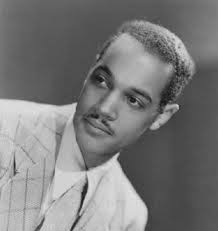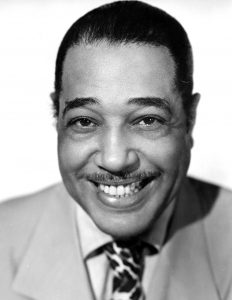Mercer Ellington was the son of Duke Ellington. Mercer was born in Washington D.C. in 1919. It is fitting that Edward Kennedy Ellington had the nickname of “Duke,” (and for that matter perhaps Mercer should have been nicknamed the Earl) because their family became jazz royalty. Duke, a fantastic and prolific composer, brought a lot of attention from white audiences to the jazz community. Duke wrote an autobiography titled Music is My Mistress, and Stanley Dance also wrote a strong biography on Duke titled The World of Duke Ellington. In 1979, Mercer Ellington wrote Duke Ellington in Person: An Intimate Memoir hoping to strike a balance between these two previous works on the Duke. Mercer said,
I should like to think that [this biography] sheds light on the relationship between father and son, and in such a way that each person can be seen as the other’s alter ego.
I value Duke Ellington in Person for the incredible insights it can give into the personal life that it can give on a figure steeped in a pre-written historical tradition.
If you are unfamiliar with the works of Mercer, it is perhaps because he continued on the Duke Ellington Orchestra after Duke passed away. Duke Ellington’s name went onto a lot of Mercer’s works, but here are a few great tunes to check out:
Duke Ellington in Person highlights, perhaps better than other sources, the racial tensions that Duke constantly dealt with in his career. In a section on Irving Mills, Duke Ellington’s front man for a number of years, Mercer discusses how Duke and Irving were both interested in reaching white audiences with their music. In the writing of the hit, “Mood Indigo,” the title of the song was manufactured for a clean reception. Mercer highlights the process when he states that Duke
originally titled it “Dreamy Blues,” which described its character; but the other title [of Mood Indigo] had a more sophisticated sound to the public of that era. Irving understood the importance of adding prestiege to the produce, almost, I would say, of packaging it. So did Ellington.
Anecdotes like these are incredibly important from Mercer’s perspective because they can help clear some of the tone behind the racial issues that Ellington dealt with on a daily basis. As you ponder this, I will leave you with several popular renditions of Mood Indigo. I hope you are able to view this piece within the context it was created.
–Brock Carlson
Works Cited
Ellington, Mercer, and Stanley Dance. Duke Ellington in person: an intimate memoir. New York: Da Capo Press, 1979.


